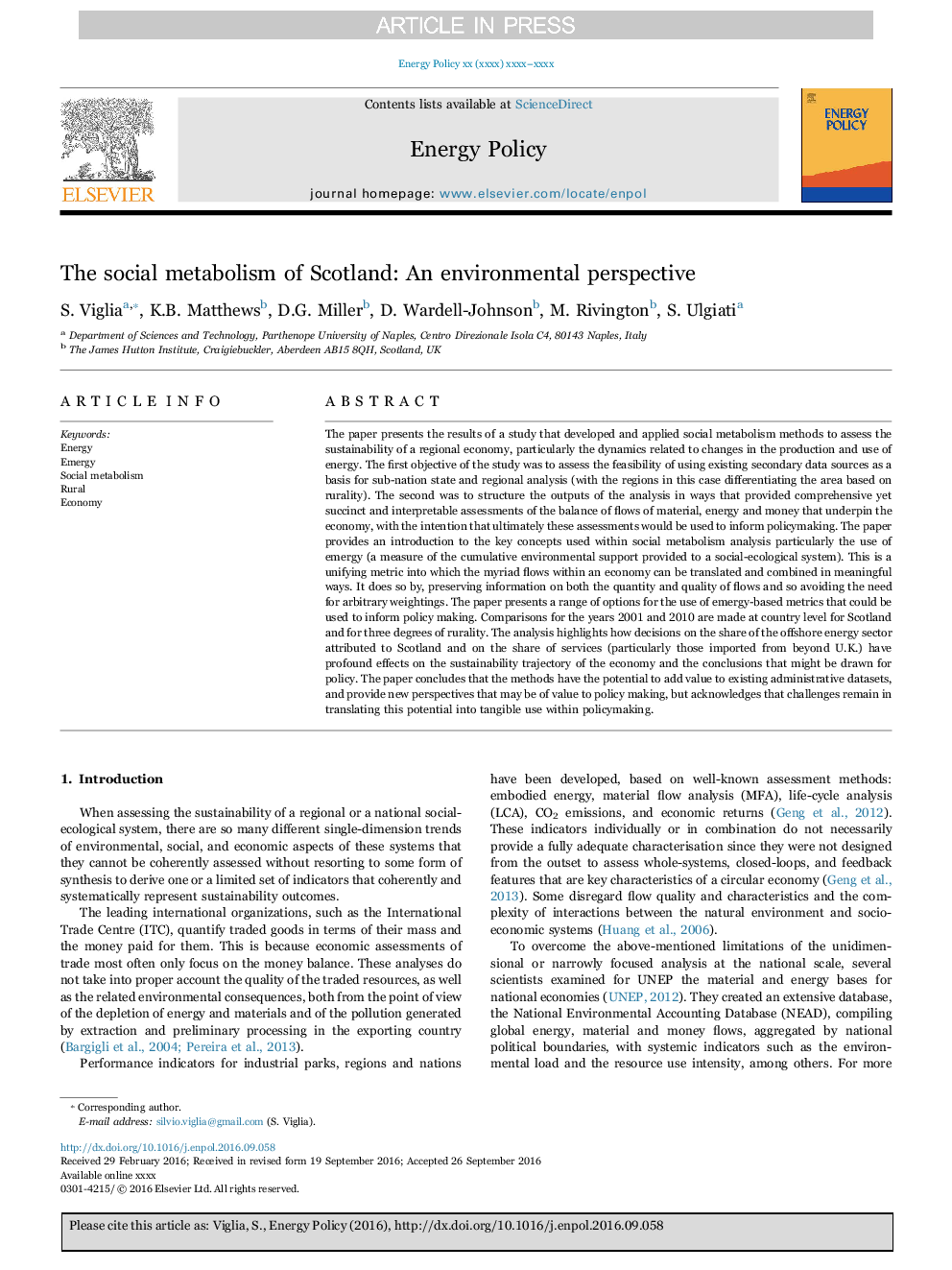ترجمه فارسی عنوان مقاله
متابولیسم اجتماعی اسکاتلند: چشم انداز زیست محیطی
عنوان انگلیسی
The social metabolism of Scotland: An environmental perspective
| کد مقاله | سال انتشار | تعداد صفحات مقاله انگلیسی |
|---|---|---|
| 108937 | 2017 | 10 صفحه PDF |
منبع

Publisher : Elsevier - Science Direct (الزویر - ساینس دایرکت)
Journal : Energy Policy, Volume 100, January 2017, Pages 304-313
ترجمه کلمات کلیدی
انرژی، ایمان، متابولیسم اجتماعی، روستایی، اقتصاد
کلمات کلیدی انگلیسی
Energy; Emergy; Social metabolism; Rural; Economy;

